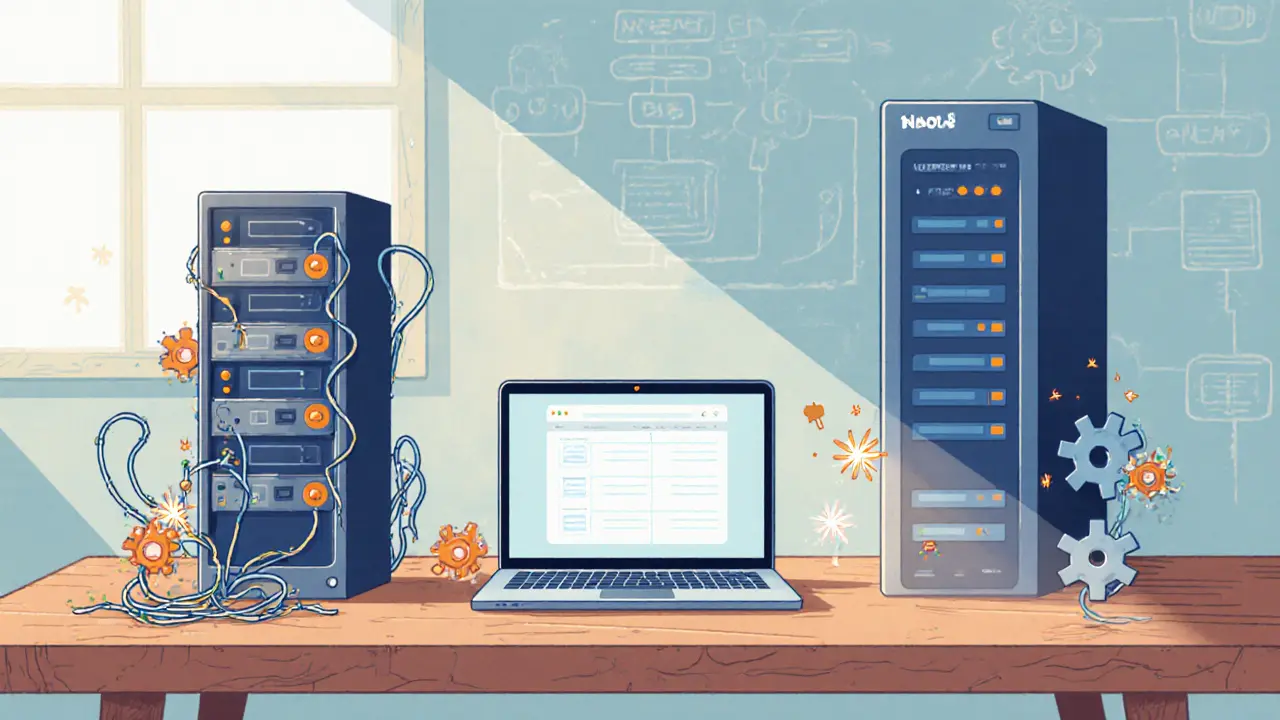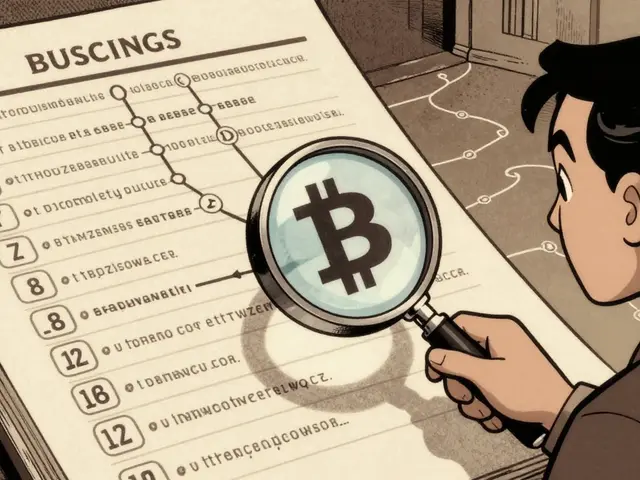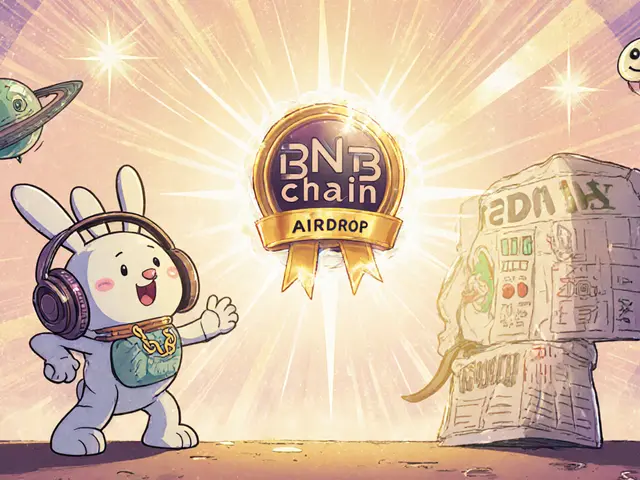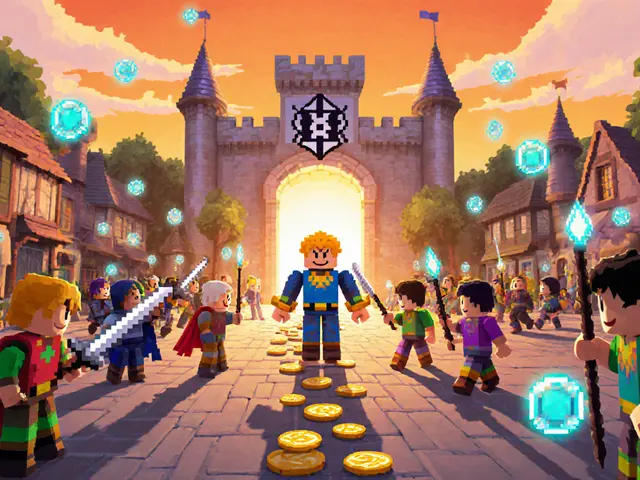
Blockchain Node Type Comparison Tool
This tool helps you compare the three main types of blockchain nodes and understand their roles in maintaining network decentralization.
Full Node
Stores the entire blockchain and validates all transactions.
Light Node
Stores minimal data and relies on full nodes for verification.
Archive Node
Stores complete historical data for deep analysis.
Detailed Comparison
| Aspect | Full Node | Light Node | Archive Node |
|---|---|---|---|
| Data Stored | Entire blockchain (pruned optional) | Only block headers and recent state | Every historic state & all receipts |
| Storage Needed | ~500 GB (2025 Bitcoin) | ~2 TB (Ethereum archive) | Large storage capacity required |
| Network Role | Validates and propagates transactions | Relies on full nodes for verification | Supports deep historical queries, explorers |
| Typical Use-Case | Enterprise services, decentralization advocates | Mobile wallets, low-resource devices | Analytics platforms, block explorers |
| Contribution to Decentralization | High - Most impactful | Moderate - Supports connectivity | High - Enables deep analysis |
Why Run a Node?
- Security: Contributes to network resilience against attacks
- Trustlessness: Verifies transactions independently without relying on others
- Censorship Resistance: Makes it harder for authorities to block or erase data
- Economic Incentives: Many chains reward node operators with tokens
- Governance Participation: Some nodes grant voting rights in network decisions
Recommendation
To maximize decentralization and network security, running a Full Node is most beneficial. However, even Light Nodes help maintain connectivity, and Archive Nodes enable advanced analytics.
Key Takeaways
- Running a blockchain node is the most direct way to keep a network truly decentralized.
- Nodes provide security, trust‑lessness, and censorship resistance by replicating the entire ledger.
- Economic rewards and voting rights give operators a real stake in a chain’s future.
- Full, light and archive nodes each serve different roles; choose the one that matches your resources.
- Future upgrades - from more efficient software to layer‑2 scaling - keep node operation accessible.
When you hear the word "node" in the crypto world, think of a computer that stores a complete copy of a blockchain and talks to its peers. Blockchain Node is a network participant that validates transactions, enforces consensus rules, and relays data to other participants. Owning and running one does more than just earn you a few coins; it directly strengthens the decentralization promise that underpins Bitcoin, Ethereum, and dozens of other chains.
What Exactly Is a Blockchain Node?
A node is any device that runs the official software for a given blockchain. It keeps an identical copy of every block, from genesis to the latest, and uses peer‑to‑peer (P2P) protocols to exchange data. The first public‑world implementation appeared with Bitcoin, the original cryptocurrency created by Satoshi Nakamoto in 2008. Since then, networks like Ethereum have adopted similar node architectures but added support for smart contracts.
Two technical pillars define a node:
- Ledger replication - every node stores the full transaction history, guaranteeing data redundancy.
- Consensus participation - nodes run the chosen algorithm (Proof of Work, Proof of Stake, etc.) to agree on the next block.
This redundancy eliminates single points of failure: if one server goes down, the rest of the network still has the data.
How Nodes Create Decentralization
Decentralization is not a buzzword; it's a measurable property that emerges from the sheer number and distribution of nodes. Three core benefits illustrate why each node matters:
- Security through majority control: An attacker would need to hijack more than 50% of the active nodes to rewrite history. In a network with tens of thousands of nodes, that cost is astronomical.
- Trust‑less verification: Every transaction is checked by many independent nodes using cryptographic signatures. No single party can unilaterally decide what’s valid.
- Censorship resistance: Because data lives on thousands of machines worldwide, no government or corporation can easily block or erase it.
These properties have real‑world consequences. For example, during the 2023 geopolitical crackdown on crypto in Country X, the Dash network continued processing payments because its masternodes were scattered across more than 30 countries.

Economic Incentives and Governance Power
Running a node is not just altruistic; most chains reward participants with native tokens. The reward model varies:
- Proof of Work chains (e.g., Bitcoin) give newly minted coins to miners who also operate full nodes.
- Proof of Stake chains (e.g., Ethereum) pay staking rewards to validators, which are essentially specialized nodes.
- Hybrid networks like Decred allow stakeholders to vote on proposals through their nodes, blending PoW and PoS.
Beyond money, many projects grant voting rights to node operators. In the Dash masternode system, each node can cast votes on treasury spending and protocol upgrades. MakerDAO lets MKR‑token‑holders run nodes that participate in governance decisions about stablecoin parameters.
These incentives create a sense of ownership-operators feel directly responsible for the network’s health, which in turn fuels ongoing participation.
Node Types: Full, Light, and Archive
Not everyone has a server‑room full of SSDs, so most blockchains offer multiple node configurations. Below is a quick comparison:
| Aspect | Full Node | Light Node | Archive Node |
|---|---|---|---|
| Data Stored | Entire blockchain (pruned optional) | Only block headers and recent state | Every historic state & all receipts |
| Storage Needed | ~500GB (2025 Bitcoin) | <5GB | >2TB (Ethereum archive) |
| Network Role | Validates and propagates transactions | Relies on full nodes for verification | Supports deep historical queries, explorers |
| Typical Use‑Case | Enterprise services, decentralization advocates | Mobile wallets, low‑resource devices | Analytics platforms, block explorers |
If your goal is to boost decentralization, running a full node is the most impactful. Light nodes still contribute to network connectivity but rely on full nodes for security.
Getting Started: Hardware, Software, and Connectivity
Here’s a practical checklist for aspiring node operators:
- Hardware: A modern CPU (e.g., Intel i5 or AMD Ryzen 5), 8GB RAM, and SSD storage sized for your chosen chain.
- Internet: Unlimited bandwidth with at least 10Mbps upload/download; stable 24/7 connection.
- OS: Linux (Ubuntu 22.04) is the most common, but Windows and macOS are also supported.
- Software: Download the official client from the project’s GitHub or website. Verify the PGP signature to avoid tampered binaries.
- Security: Enable a firewall, use fail2ban, and keep your OS patched. Store private keys in an air‑gapped hardware wallet when possible.
- Sync: Initial block download can take days. Use a fast SSD and consider a “bootstrap” snapshot provided by the community.
After you’re synced, monitor peer count and block height using built‑in RPC commands. A healthy node typically has 10+ inbound peers and stays within a few seconds of the network’s latest block.

Common Pitfalls and Pro Tips
- Ignoring updates: Consensus rules can change (hard forks). Set up automatic alerts for upcoming upgrades.
- Running on a home connection: Power outages can cause your node to go offline, reducing its impact. Consider a UPS or a cloud VPS for critical nodes.
- Over‑provisioning: Running an archive node when you only need a full node wastes electricity and storage.
- Neglecting peer diversity: Connect to nodes in different geographic regions to avoid network partitioning.
Pro tip: Use a tool like Prometheus to scrape node metrics and set up Grafana dashboards. Visual monitoring lets you spot latency spikes before they affect consensus participation.
Future Outlook: Scaling, Regulation, and New Consensus Models
Node operation will keep evolving. Layer‑2 solutions (e.g., rollups on Ethereum) offload transaction processing but still rely on full nodes for data availability. New consensus mechanisms like Proof of Authority and hybrid PoW/PoS aim to reduce energy consumption while preserving decentralization.
Regulators are also taking notice. The EU’s MiCA framework references “node operators” as essential service providers, which could spur institutional participation. As more enterprises run their own nodes, the ecosystem will gain both credibility and resilience.
However, challenges remain. If a few cloud providers host the majority of nodes, the network risks centralization under the guise of convenience. Community initiatives like Decentralized Autonomous Nodes (DAN) aim to distribute node ownership through token‑backed staking pools.
Frequently Asked Questions
Do I need a high‑end PC to run a Bitcoin full node?
No. Modern mid‑range CPUs, 8GB RAM, and an SSD with at least 500GB of free space are sufficient. The biggest cost is electricity for 24/7 uptime.
Can a light node contribute to decentralization?
Light nodes improve network connectivity but rely on full nodes for validation. Their impact on decentralization is modest compared to full nodes.
What are the typical rewards for running a validator on Ethereum?
Validators earn ETH rewards that average 4‑5% annual yield, plus transaction fees (tips) from users. Exact returns depend on network participation and slashing penalties.
How does running a node help with censorship resistance?
Since each node stores a full copy of the ledger, an adversary would need to shut down or control a majority of nodes to erase or block data. Geographic and jurisdictional diversity makes this practically impossible.
Is operating a node legal everywhere?
Legality varies by country. Most jurisdictions allow running a node, but some restrict encryption or require licensing for certain consensus‑related activities. Always check local regulations.





Comments (18)
Ayanda Ndoni
bro i tried running a node once... my laptop sounded like a jet engine and my electricity bill doubled. just trust the exchanges lol.
Elliott Algarin
there's something quietly beautiful about running a node. it's not about rewards or status. it's just... being part of the quiet infrastructure that lets the whole thing breathe.
John Murphy
i run a full node on an old raspberry pi 4 with a 1tb ssd. sync took a week but now it just sits there humming. feels good to know im not just relying on someone else's server
Zach Crandall
The operational burden of node maintenance is not trivial. One must consider not merely hardware specifications but also the philosophical implications of network participation as a civic duty in the digital age.
Akinyemi Akindele Winner
decentralization my ass. 80% of nodes are hosted on aws or digitalocean. you think you're helping but you're just renting a cloud box and calling it activism. real decentralization means running on your grandma's toaster oven with a 3g dongle
Patrick De Leon
this whole node thing is just american tech bros pretending they're hackers. in ireland we just use the blockchain like a bank and leave the tech to the professionals
MANGESH NEEL
you people think running a node makes you special? you're just a glorified data relay. the real revolution is in the code not in some guy's basement with a cooling fan that sounds like a dying dragon. you're not saving the world you're just wasting electricity and bandwidth
Sean Huang
have you ever wondered if the node software is secretly sending your data to the feds? i mean... who wrote the official client? what if it's a backdoor disguised as decentralization? i use a custom build with 17 layers of encryption and i only connect to nodes i know personally... and yes i'm paranoid but not paranoid enough
Ali Korkor
you got this! even a basic node helps. start small, don't stress over the specs. just get it running and learn as you go. the community's got your back
madhu belavadi
why do people even care? it's just a bunch of computers talking to each other. i could care less if it's decentralized or not as long as my coins don't disappear
Dick Lane
i run a node because it reminds me that the internet doesn't have to be controlled by a few big companies. even if no one sees it, it's still there working
Norman Woo
i tried runnin a node but my internet kept dropin and now i think its spyin on me... maybe i shoulda used a vpn or something idk
Serena Dean
if you're thinking about running a node just start with a light node on your phone. it's easier than you think and you'll be surprised how much it helps the network. you don't need a server farm to make a difference
James Young
you're all delusional. running a node doesn't make you a hero. the real power is in the miners and the whales who control the liquidity. you're just a glorified router with a false sense of importance
Chloe Jobson
node diversity is critical for liveness. geographically distributed full nodes reduce attack surface and improve data availability for layer 2 rollups. infrastructure resilience is non-negotiable in trust-minimized systems
Andrew Morgan
i got my node running last week. it's on a tiny box in my closet. nobody knows it's there. but every time it syncs i feel like i'm part of something bigger. kinda peaceful honestly
Michael Folorunsho
only true degens run full nodes. the rest are just paying for cloud compute and calling it decentralization. if you're not running on your own hardware with your own power and your own ip you're just a tenant in someone else's empire
Roxanne Maxwell
my mom asked me why i'm running a node. i told her it's like having a library in your house instead of just borrowing books. she didn't get it but she brought me cookies anyway